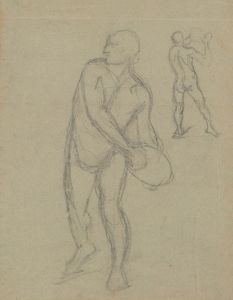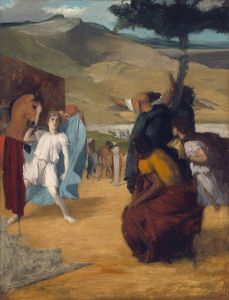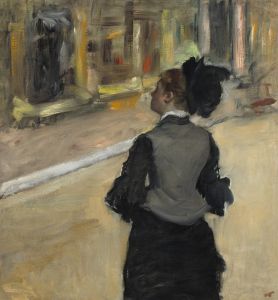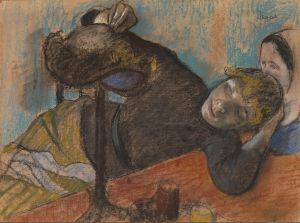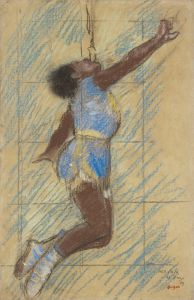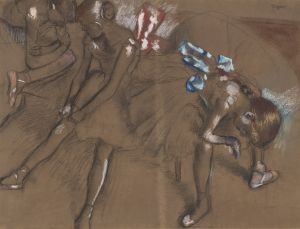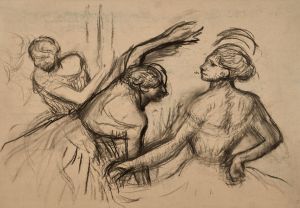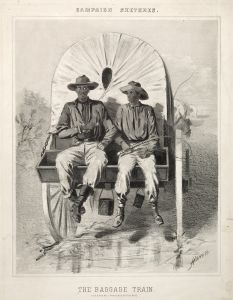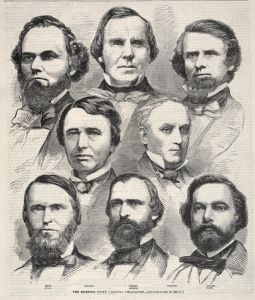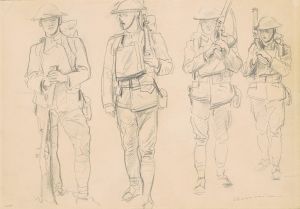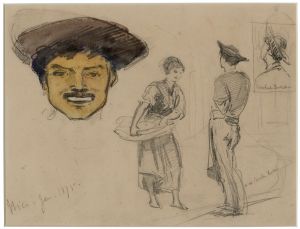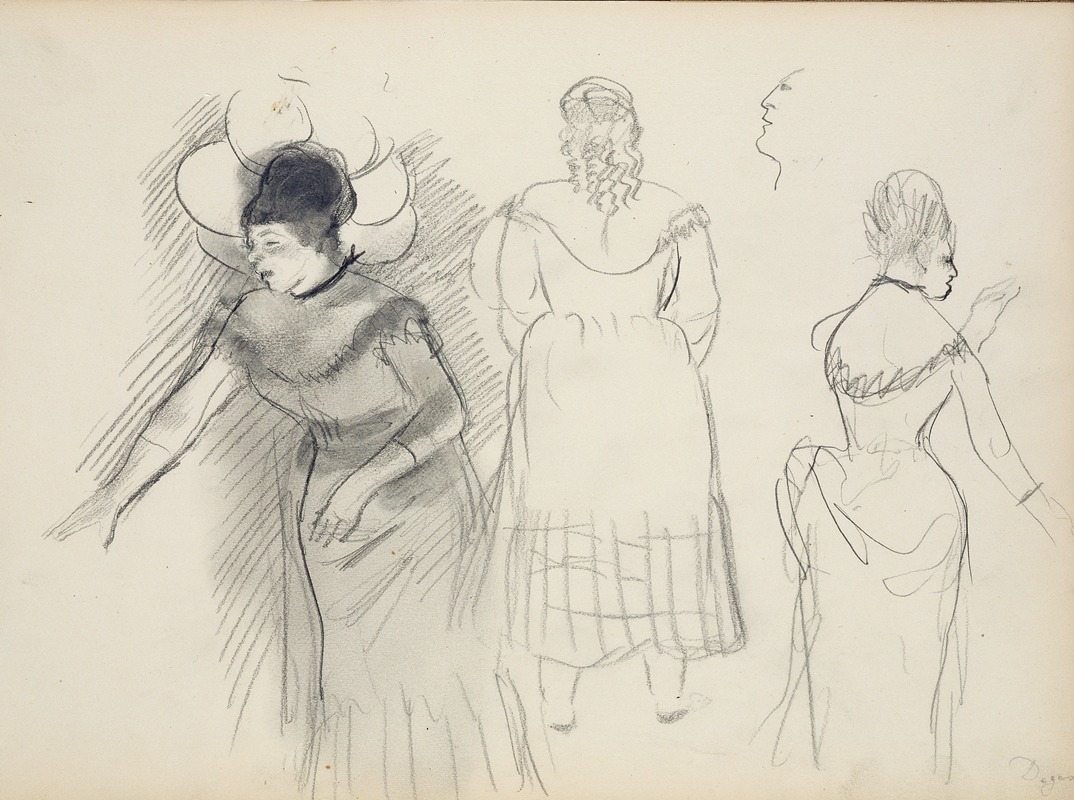
Sketches of Café Singers
A hand-painted replica of Edgar Degas’s masterpiece Sketches of Café Singers, meticulously crafted by professional artists to capture the true essence of the original. Each piece is created with museum-quality canvas and rare mineral pigments, carefully painted by experienced artists with delicate brushstrokes and rich, layered colors to perfectly recreate the texture of the original artwork. Unlike machine-printed reproductions, this hand-painted version brings the painting to life, infused with the artist’s emotions and skill in every stroke. Whether for personal collection or home decoration, it instantly elevates the artistic atmosphere of any space.
Edgar Degas, a prominent French artist associated with the Impressionist movement, created "Sketches of Café Singers" as part of his exploration of modern life in 19th-century Paris. Degas is renowned for his innovative approach to capturing fleeting moments and his focus on contemporary urban scenes, particularly those involving performers, dancers, and other figures of Parisian nightlife. This work reflects his interest in the vibrant and dynamic world of café-concerts, a popular form of entertainment during his time.
"Sketches of Café Singers" is not a single finished painting but rather a series of studies or preparatory sketches. These works showcase Degas's meticulous observation of human gestures and expressions, as well as his ability to convey the atmosphere of a performance setting. The café-concerts were informal venues where singers and entertainers performed for audiences, often in a lively and somewhat bohemian environment. Degas's sketches capture the essence of these performances, focusing on the singers' postures, movements, and interactions with their surroundings.
Degas frequently used mixed media in his sketches, combining pencil, charcoal, and pastel to achieve a sense of immediacy and spontaneity. His use of pastel, in particular, allowed him to experiment with vibrant colors and textures, which became a hallmark of his later works. These sketches often served as studies for more finished compositions, though many of them stand alone as remarkable examples of his artistic process.
The café singers depicted in Degas's sketches are typically shown in mid-performance, with an emphasis on their expressive gestures and the theatricality of their presence. Degas was less concerned with idealized beauty and more interested in capturing the authenticity of his subjects. This approach aligns with his broader artistic philosophy, which sought to depict modern life as it was, without romanticization.
While specific details about the individual sketches in "Sketches of Café Singers" are limited, they are consistent with Degas's broader body of work, which often focused on performers and the behind-the-scenes aspects of their lives. His fascination with movement, light, and the human form is evident in these studies, which continue to be celebrated for their insight into both the artist's technique and the cultural milieu of 19th-century Paris.
Degas's work, including his sketches of café singers, remains influential in the art world, offering a unique perspective on the intersection of art, entertainment, and modernity. These sketches are housed in various collections and continue to be studied for their contribution to the understanding of Degas's artistic legacy.





